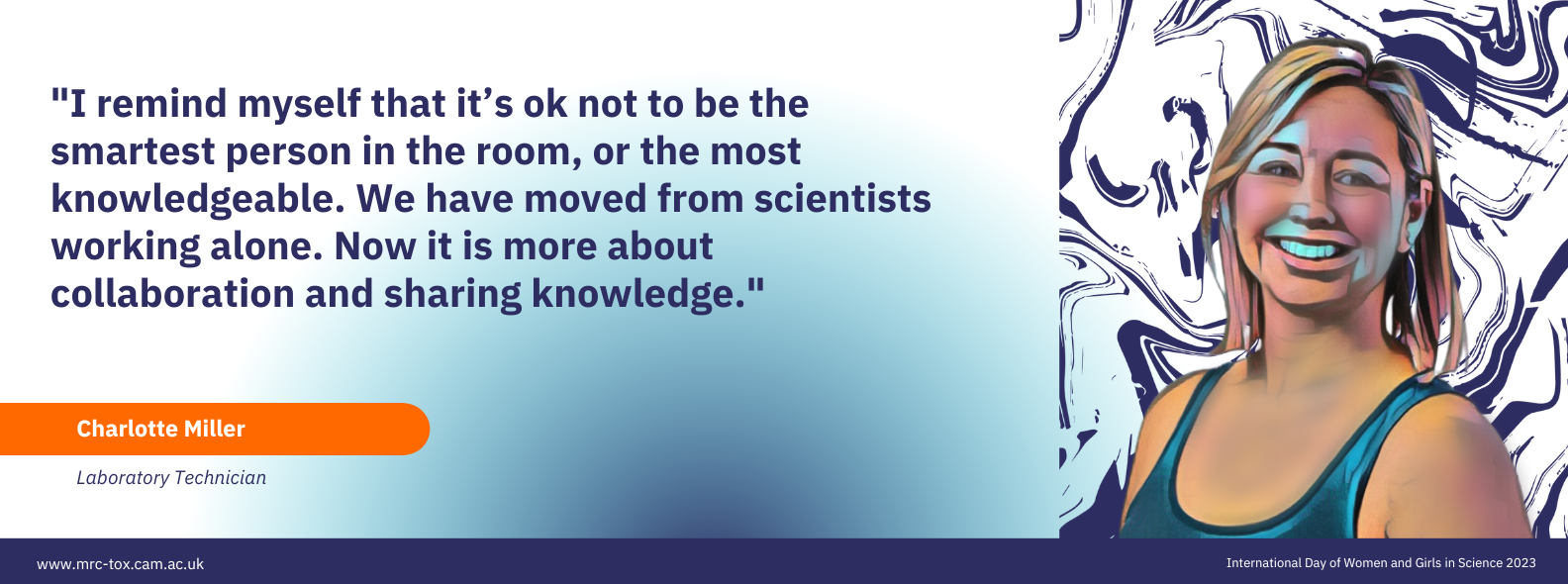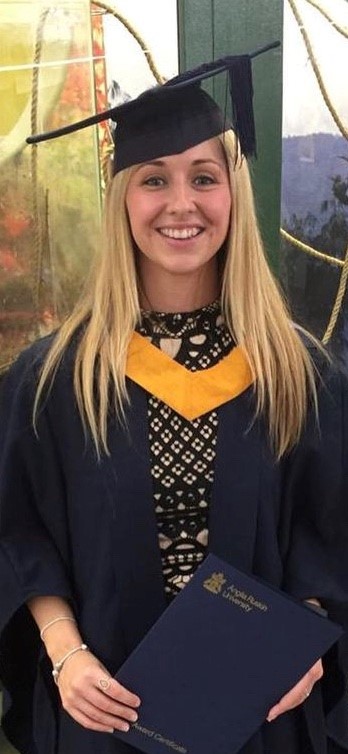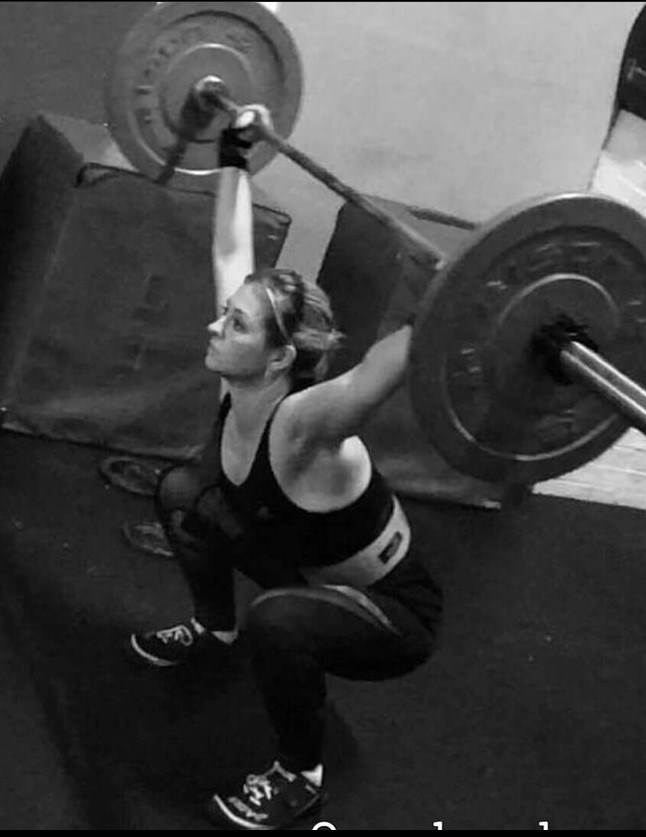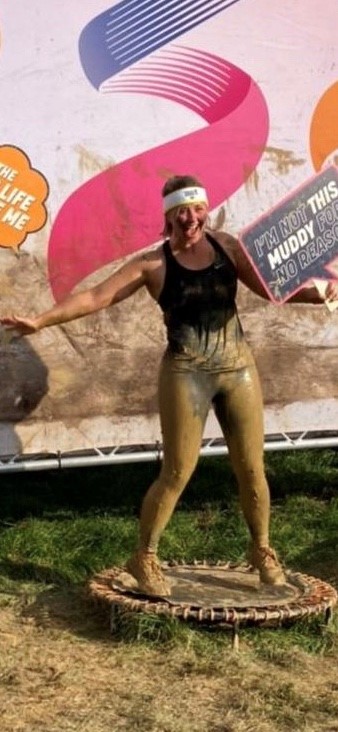To mark International Day of Women and Girls in Science 2023, we are sharing profiles of some of the women from the MRC Toxicology Unit highlighting their careers, experiences, passions and more. Today we want to introduce you to Charlotte.
Who are you and what is your role?
My name is Charlotte, and I am a Laboratory Technician here at the MRC Toxicology Unit, and I work within the media kitchen.
What does a typical day look like for you?
My mornings and afternoons usually follow the same pattern with tissue culture checks which includes emptying pipette boots & autoclave bins, emptying full aspirators and waste buckets and ensuring general stock is replenished. Every morning we also go around the Unit to return clean glassware, collect dirty glassware, that we then wash and autoclave, if required.
The middle of the day can vary depending on the day of the week and the overall needs. These kinds of tasks can include:
- Autoclaving waste & equipment.
- Making up, and sterilising, bottles of PBS, media, water, and equipment such as, Eppendorf’s and tips – we have got to keep that cupboard stocked.
- Deep cleaning tissue culture rooms. We clean the hoods, incubators, centrifuges, and water baths.
- Mycoplasma PCR testing for groups/researchers that require it.
What inspired you to pursue a career in science?
I didn’t ever see myself in a scientific setting, initially. Science was not my favourite subject in secondary school and I left with questionable grades all round. However, as an adult, I went back to college to re-take my GCSE’s, one of which was science, and I loved it. I believe that my teacher's enthusiasm and passion for the subject really helped to take me on a positive journey to turning my grades around. It was then that I knew I wanted to pursue a career within the sciences.
If you could have a lab superpower, what would it be?
To ensure that I could perform a successful PCR gel. EVERY. SINGLE. TIME.
Have you ever felt like you don't belong in science?
Yes, mostly due to my own self-doubt. I have worried, on occasion, that I am not smart enough or not knowledgeable in most scientific areas. I must remind myself that it’s ok not to be the smartest person in the room, or the most knowledgeable. Science has moved on a lot from single scientists working alone and now it is more about collaboration and sharing knowledge. It’s about bringing people together and pooling different skillsets. There will always be things I can learn from others as well as sharing my own skillsets too.
What is the most important thing for you in life?
Balance and variety. My friends and family are important to me so being able to fit in work/life commitments around spending time with loved ones is something that I strive towards. It’s also important that I make time for myself too. I like working out and going out for walks, so that is something I like to fit in. I like to keep myself mentally stimulated and to achieve this I need variety in my life, whether that be learning new skills at work or University. That is why I’m drawn to the research arm of science as it dynamic and ever changing.
What advice would you share with other women in science, or girls interested in getting into science?
Science, as a career, can offer so much due to its diversity, and broad subject areas, that there is something in it for everyone. Whether it’s the natural sciences you’re interested in or engineering and technology, if you want to work in a clinical setting or research, or if you’d like to work with people and diseases, animals, or even microorganisms. If it is something you are thinking about then don’t be afraid to dive in and go for it.





